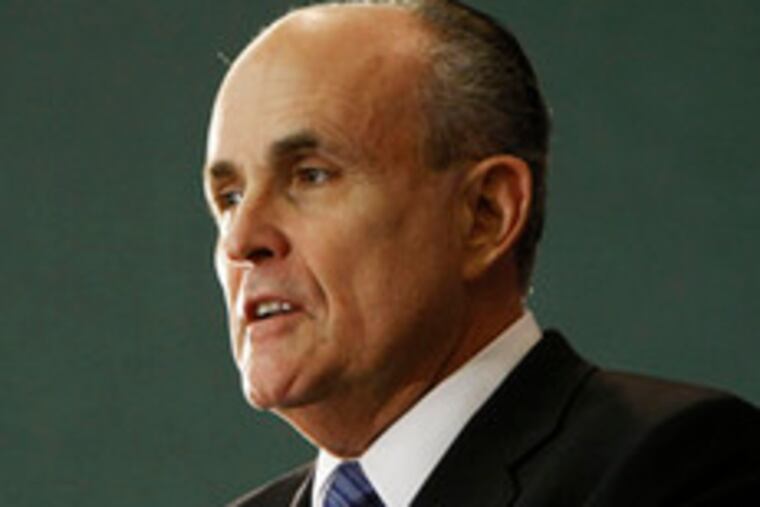Economic concerns could reshape the GOP campaign
McCain's security focus may not mesh with voters' worries - and rivals' key themes.

As the Republican presidential candidates prepare for their debate tonight in Florida, the question is whether voters' concerns about the economy will alter the dynamic of the GOP race.
On the heels of his victory Saturday in the South Carolina primary, Sen. John McCain has momentum. He's running well in Florida, which votes Tuesday, and has wiped out former New York Mayor Rudy Giuliani's lead in several states voting on Super Tuesday, Feb. 5, including New York and New Jersey.
But the economy is not seen as his strongest suit. The Arizona senator has built his campaign on his expertise in national security and his early, outspoken support for the troop surge in Iraq.
So the volatile stock market and growing recession fears, which the major candidates addressed yesterday, might provide an opening for former Massachusetts Gov. Mitt Romney, who has the overall delegate lead, or Giuliani.
Romney has been stressing his credentials as a former businessman with experience in turning around failing companies.
"I think people recognize now more than ever that it makes a difference having a president who has actually had a job in the private sector," Romney said in Florida this week. "And not just had a job there but has worked for 25 years in the private sector, and then in the Olympics and the voluntary sector."
Giuliani has trumpeted his claim as tax-cutter supreme, saying that his plan, which he put forward two weeks ago, is just what the nation needs for economic reinvigoration.
"Now is the right time to cut taxes so we can put America back on a pro-growth path toward future prosperity," he said recently.
And the McCain camp, mindful that the new issue landscape might not be to its liking, has stressed the value of the candidate's overall leadership skills.
"We will have a pro-growth, pro-economic, low-tax, low-spending agenda when I'm president," McCain said yesterday in Florida.
Polls indicate that no Republican candidate has a huge advantage over the others in terms of perceived competence to manage the economy. But that could change, at least in Florida, where the campaigns are bombarding voters with commercials.
The Republican candidates generally have supported President Bush's efforts to work out a short-term economic stimulus plan with the Democratic Congress.
But for the most part, they have used the situation as a chance to remind voters of their longer-term economic plans, most of which are heavy on tax cuts.
Romney announced his plan last Saturday. Among other things, it would cut the tax rate in the bottom bracket from 10 percent to 7.5 percent; eliminate Social Security payroll taxes for employees over age 65; get rid of taxes on interest, capital gains and dividends for people with less than $200,000 in income; and reduce the corporate tax rate from 35 percent to 20 percent in two years.
Giuliani's tax cut is even bigger. He would cut the corporate tax rate to 25 percent; eliminate the federal estate tax; reduce the capital-gains tax from 15 percent to 10 percent; eliminate the alternative minimum tax; create additional tax-free savings vehicles; and simply the income tax system by limiting it to three rates, 10, 15 and 30 percent.
McCain's package has some of the same elements but is more modest. He would cut the corporate tax from 35 to 25 percent; eliminate the alternative minimum tax; make permanent the Bush-era tax cuts of 2001 and 2003; and allow businesses to take 100 percent of new purchases as expenses in the year of purchase, rather than depreciate them over time.
Former Arkansas Gov. Mike Huckabee has been more general, stressing that what is "bad news for Wall Street is even worse for Main Street." The current troubles, he has said, show the need for his plan to scrap the federal tax code and replace it with a 23 percent sales tax.
Texas Rep. Ron Paul says the "crisis" shows the validity of his call for the United States to return to the gold standard. "Only we are telling the truth about who is to blame for this recession, and how we can build real prosperity with sound money," he said.
Tonight's debate, in Boca Raton, begins at 9 o'clock on MSNBC.
Get updates from the campaign trail via
http:// go.philly.com/campaign2008